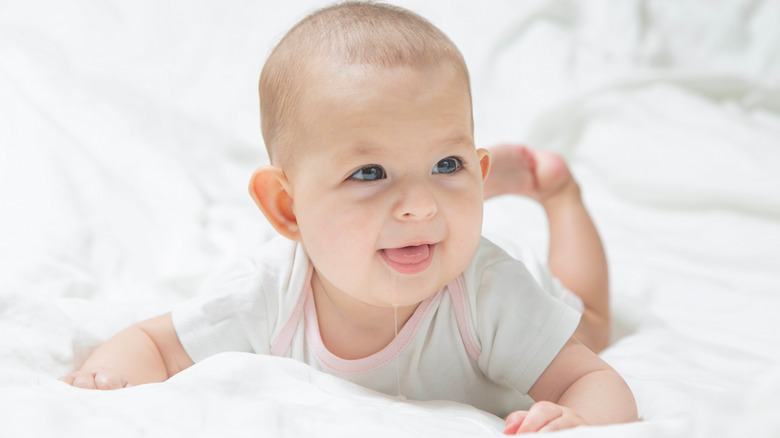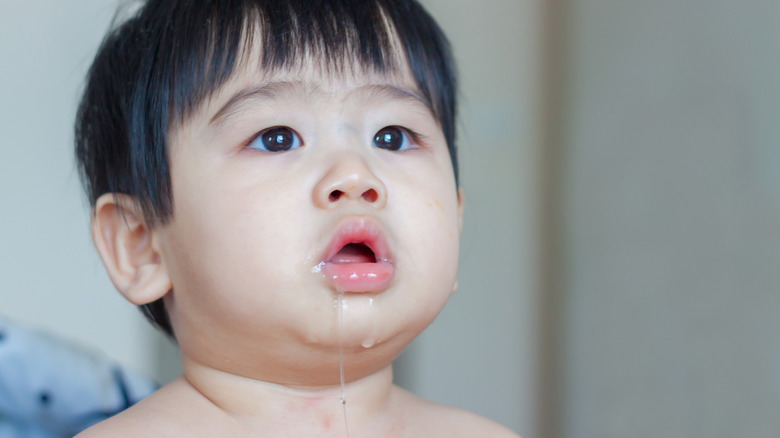What It Really Means When Your Baby Drools A Lot
We all know that babies drool. Bibs aren't just for catching food or dribbled milk — they might also be useful for soaking up all that slippery saliva. By the time your baby is a couple of months old, a soggy onesie or blanket might be a common sight. From about 3 to 6 months of age, drooling is a common habit. In fact, it's perfectly normal for healthy children under 2 years old to experience at least some drooling (via Birth Injury Help Center).
According to HealthyChildren.org, a website run by the American Academy of Pediatrics, extra saliva in infants helps to soothe painful gums, makes swallowing easier, softens solid foods, washes away food residue, and protects your baby's teeth. There's even a "natural antacid in saliva [that] neutralizes stomach acid and aids digestion," according to the site. So drooling is normal and useful — but is there such a thing as too much?
When drool can become a concern
Excessive drooling, or sialorrhea, can occur for a number of reasons. Typically, excessive drooling can be connected to low muscle tone, low sensitivity in the mouth area, and trouble swallowing (via Birth Injury Help Center). According to a study in Paediatrics and Child Health, if your child has mild drooling with no other functional or psychological impairment, it's probably not a cause for concern. But if your child is drooling an excessive amount and it's accompanied by other symptoms, it may potentially be a sign of a more severe issue.
According to Nationwide Children's Hospital, sialorrhea is usually the product of "a decrease in normal control of oral (mouth and throat) sensation and motor function," manifesting in the "inability to manage normal swallowing of saliva or inattention to the need to swallow saliva." While there are multiple causes of this, it may be the result of a central nervous system and muscular disorder, such as cerebral palsy, or brain abnormalities, such as traumatic brain injury. It can also be a symptom of gastroesophageal reflux and various developmental delays, according to a study in Paediatrics and Child Health.
Because drooling can be such a common occurrence, it's important to consult with your child's pediatrician. A multitude of treatment options are available depending on what's needed and what's best for your child. In the meantime, keep calm and keep that drool bib handy.


